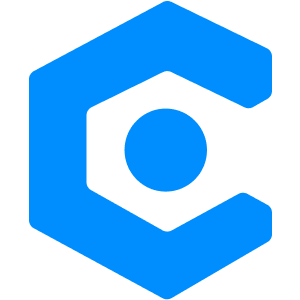I can bet that most of you at this point heard the word “blockchain” at least once. The popularity and hype around blockchain technology in the last couple of years is becoming extraordinary. Some technology scientists believe that blockchain tech is the most significant invention of 21st. century and a true game-changer to the data storage game.
By many blockchain is considered to be the next big thing following the invention of the internet. Put simply, blockchain is an elaborated database backed by the highly evolved distributed ledger technology that accounts for its decentralized nature, and it is also guarded by high-end encryption to maintain privacy and security of transactions.
Blockchain holds a record of each and every transaction which can be accessed by everyone. The most important factor to consider is that we’re eliminating the need for a central authority and a fact that blockchain repository collects data that cannot be altered because it is protected by high-level cryptography.
Blockchain is not an empty buzzword or purely theoretical invention that will take years to be developed and applied in real life (I’m looking at you quantum computing). Blockchain can be used here and now and have some pretty amazing real-world applications across various industries, blockchain technology is real.
Let’s see what blockchain can do and take a look beyond the hype:
1. Digital identity management
Researchers estimate that around 1 billion people worldwide are hot having confirmed IDs. It’s a problem and companies and governments are working on creating an ID system for people. So far we haven’t seen a viable and ultimate solution. So the issue with nameless, unbanked people or refugees are still present. Blockchain-based ID system would help everyone to obtain valid and inimitable identity proof and link people with the financial sector without the need for advanced AML and KYC. We will have an ideal way for users to manage their digital identities.
2. Digital voting
Isn’t it weird that in the age of the Internet every single voting and election is conducted via old school paper voting? And because of that election fraud has always been a great concern. Blockchain voting will change the rules of the game here. As people would be able to vote only once and it won’t be possible to alter voting in any way as changes made to the network would be noticed by the officials. In addition, it will make voting transparent.
3. Supply chain management
Blockchain can be used to tag items and track basically everything. With blockchain supply chain monitoring we can increase the overall efficiency of supply chains. We could get rid of paper-based trails and switch to full, accurate identification of the location of items on the supply chain. It would certainly save a lot of money and speed up the time of supply chain management. Some companies are starting to use this system: PepsiCo reported a 28% efficiency improvement in blockchain-powered supply chain system.
4. Healthcare
Healthcare is a sector where information matters the most and often draws a thin line between life and death. The patient is the most important here and has the right to accurate information. However, some hospitals are still keeping a patient’s health records in the form of paper sheets. If hospitals would have moved away from paper for recordkeeping and use blockchain technology to store patient data it would be a great improvement. We could keep records confidential, private and secure it at the same time. Patient diagnoses can also be stored within the blockchain and could help to track purchases of prescription drugs. The patient would be given a private key to access these records and therefore would be in control of who can view that data.
5. Data sharing
It’s possible to use blockchain to share data on the level never seen before. A good example here is technology developed by the IOTA Foundation, where is will be possible to use blockchain to share or sell unused data on specially created marketplace.
6. Royalty protection and copyright
It’s always been a challenge to think of a solid system for copyright and ownership laws on digital data. We can agree that music, eBooks, videos and other online content must be copyrighted in today’s day and age. With the application of blockchain, digital content downloads could be stored and the creator of the content would get their fair share, all in real-time.
7. Real estate ownership
With all records related to real estate ownership details stored on the blockchain, we will make easier to transfer or modify it. There won’t be necessary to keep paper documents, as titles stored on the blockchain database can be viewed, altered, and updated whenever required. It would offer unparalleled level management of real estate legal ownership.
8. Wills and inheritances
Paper wills or inheritances are things of the past. We can replace them with digital ones that can be created and stored directly with the blockchain. Additionally, we can link data in the blockchain with smart contracts as it would make your document both legally binding and totally transparent as to who should receive which assets. This would be the ultimate way of creating a will that couldn’t be forged nor changed by anyone other than the true owner.
As we can see Blockchain technology could be used for so many applications and may vary from one industry to the other. Different blockchains suit a variety of needs and will bring improvements to stability, cost, speed, security and overall user experience of every service where blockchain will be used.
If you're looking for general information about cryptocurrency, crypto news, tips, guides, strategies, fintech, new technologies, trading space, crypto investments and many more? MyCointainer Insight is the place to go. We have it covered! Visit MyCointainer Platform also feel free to sign up for our Community so we can make impact together.
*Follow MyCointainer on Twitter or Instagram and check out our Telegram channel.*
